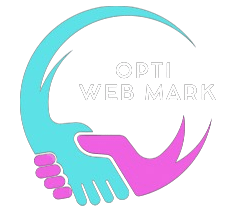
In today’s competitive digital landscape, local SEO (Search Engine Optimization) is essential for businesses looking to increase their visibility in local search results and attract more customers. Whether you’re a small local shop or a service-based business, optimizing your online presence for local search can have a significant impact on your bottom line.
However, many businesses make avoidable local SEO mistakes that can harm their rankings and limit their ability to connect with local customers. In this blog, we’ll explore the 10 most common local SEO mistakes that businesses make, why they hurt your ranking, and how to avoid them to ensure better visibility in search engine results.
By avoiding these local SEO mistakes, you can improve your search rankings, drive more local traffic to your business, and ultimately increase conversions and sales.
1. Not Optimizing for Google My Business (GMB)
One of the most critical components of local SEO is Google My Business (GMB). GMB is a free tool that allows businesses to manage their online presence across Google, including search and maps. If you’re not optimizing your GMB profile, you’re missing out on a valuable opportunity to improve your local search rankings.
Why It Hurts Your Ranking:
A GMB profile that is incomplete or poorly optimized will prevent Google from properly understanding your business. Since Google uses GMB information to determine how relevant your business is for specific local search queries, a non-optimized GMB profile can lower your visibility and limit your chances of appearing in the local “3-Pack” (the top three results that appear in local searches).
How to Fix It:
- Complete your GMB profile: Ensure that your business name, address, phone number, and business hours are accurate.
- Choose the right categories: Select the most relevant categories for your business.
- Update your photos regularly: Share images of your business, products, and team to make your listing more engaging.
- Respond to reviews: Engage with customers by responding to reviews and asking for more feedback.
2. Ignoring Local Keywords
Incorporating local keywords is vital for ensuring that your business ranks well in geographically relevant searches. Local keywords include the name of the city, neighborhood, or region where you operate, alongside the services or products you offer.
Why It Hurts Your Ranking:
Without targeting local keywords, your website may struggle to rank for searches related to your geographic area. Google needs to understand that your business is relevant to the local searcher, and local keywords are a key indicator of relevance.
How to Fix It:
- Conduct keyword research: Use tools like Google Keyword Planner, SEMrush, or Ahrefs to identify high-traffic local keywords.
- Optimize your content: Use these keywords naturally in your website copy, blog posts, meta tags, and URLs.
- Include location-specific keywords: Add your city, region, or neighborhood in strategic places across your site.
3. Inconsistent NAP (Name, Address, Phone Number) Information
One of the most common local SEO mistakes is inconsistent NAP (Name, Address, Phone Number) information across different online platforms. This includes your website, Google My Business, online directories, and social media profiles.
Why It Hurts Your Ranking:
Google relies on NAP consistency to verify the legitimacy and relevance of your business. If your NAP information is inconsistent or incorrect across various websites, it can confuse search engines and negatively affect your rankings.
How to Fix It:
- Ensure consistency: Double-check that your NAP is consistent across all online platforms.
- Use citation management tools: Tools like Moz Local, Yext, and BrightLocal can help you ensure your NAP details are accurate across the web.
- Correct discrepancies: Regularly audit your listings and update any outdated or incorrect information.
4. Lack of Reviews and Social Proof
Customer reviews play a crucial role in local SEO, as they help build trust and improve your ranking. Positive reviews indicate to Google that your business is reputable and popular, and they can also influence potential customers’ decisions.
Why It Hurts Your Ranking:
Businesses without reviews or with poor ratings may find it harder to appear in local search results. Google values social proof and user-generated content, and a lack of reviews could signal to search engines that your business isn’t trustworthy or relevant.
How to Fix It:
- Encourage reviews: Ask your satisfied customers to leave positive reviews on Google, Yelp, Facebook, and other platforms.
- Respond to all reviews: Engage with customers by responding to both positive and negative feedback.
- Display reviews on your website: Showcase testimonials on your site to build credibility.
5. Ignoring Mobile Optimization
With more consumers searching for local businesses on their mobile devices, mobile optimization has become a critical factor for local SEO. Google prioritizes mobile-friendly websites, and failing to optimize your site for mobile users can harm your ranking.
Why It Hurts Your Ranking:
Google uses mobile-first indexing, which means it evaluates the mobile version of your website for ranking purposes. If your site is not mobile-optimized, it can negatively affect your rankings and user experience.
How to Fix It:
- Ensure mobile responsiveness: Make sure your website adapts seamlessly to different screen sizes.
- Improve load times: Optimize images and resources to ensure fast page loading on mobile devices.
- Test your site: Use Google’s Mobile-Friendly Test tool to check if your website is mobile-friendly.
6. Not Building Local Citations
Local citations refer to mentions of your business’s NAP information on other websites like local business directories, news sites, and other online platforms. These citations help build your business’s authority and improve local SEO.
Why It Hurts Your Ranking:
A lack of citations can make it difficult for Google to verify your business’s legitimacy, which can affect your local search ranking.
How to Fix It:
- Submit your business to local directories: Add your business to platforms like Yelp, Yellow Pages, and local chambers of commerce websites.
- Use citation tools: Platforms like Moz Local or Yext can help you ensure consistency and accuracy across various directories.
- Get listed on industry-specific sites: Look for relevant directories within your industry or niche.
7. Failing to Create Localized Content
Creating localized content is essential for attracting local customers. This content should focus on topics, events, and issues that are relevant to your local community and audience.
Why It Hurts Your Ranking:
If your content is too generic and doesn’t cater to your local audience, it may not rank well for local search queries. Google prioritizes businesses that create content specific to their geographic location.
How to Fix It:
- Write about local topics: Create blog posts, news updates, or guides about local events, festivals, or community news.
- Create location-specific landing pages: If you serve multiple areas, create individual pages for each location you cater to.
- Incorporate local keywords: Use city names, neighborhoods, and other location-based terms in your content.
8. Neglecting the Importance of Backlinks
Backlinks from reputable websites help to establish your business’s authority in the eyes of Google. Having a strong backlink profile is an important ranking factor for both national and local SEO.
Why It Hurts Your Ranking:
Without quality backlinks, your website may struggle to gain authority in local search rankings, especially if your competitors have more robust backlink profiles.
How to Fix It:
- Build relationships with local influencers: Collaborate with local bloggers, news sites, and organizations to earn backlinks.
- Submit guest posts: Write guest articles for local publications or blogs to acquire backlinks.
- Sponsor local events: Sponsor local events or charities and request backlinks from the event organizers’ websites.
9. Overlooking On-Page SEO for Local Search
On-page SEO includes optimizing various elements of your website, such as title tags, meta descriptions, headers, and images, to improve search rankings. Optimizing these elements for local search is essential for boosting your local SEO.
Why It Hurts Your Ranking:
If your website is not properly optimized with relevant local keywords, it can prevent your site from ranking higher in local searches.
How to Fix It:
- Optimize title tags and meta descriptions: Include local keywords in your title tags and meta descriptions.
- Use header tags (H1, H2, H3): Structure your content with local keywords in headers.
- Add location-based schema markup: Use schema markup to provide search engines with structured data about your business’s location and services.
10. Not Monitoring and Updating Your Local SEO Strategy
Local SEO is not a one-time effort. It requires ongoing attention to stay ahead of competitors and adjust to changes in search algorithms and customer behavior.
Why It Hurts Your Ranking:
Without regular monitoring and updates, your local SEO strategy may become outdated, causing your rankings to drop over time.
How to Fix It:
- Track your rankings: Use tools like Google Analytics and Google Search Console to monitor your website’s performance.
- Stay up-to date with SEO trends: Stay informed about changes in Google’s algorithms and local SEO best practices by following authoritative blogs and SEO news sources.
- Review your SEO efforts: Regularly audit your local SEO strategy, checking your Google My Business listing, local keyword performance, reviews, and citations.
- Make updates as needed: As your business evolves or as new local competitors emerge, be prepared to make necessary adjustments to your SEO approach.
Conclusion
Mastering local SEO is a crucial step for businesses looking to succeed in their specific geographic area. By avoiding the 10 common local SEO mistakes we’ve highlighted, you’re positioning your business for better rankings, increased traffic, and ultimately more sales. Local SEO requires ongoing effort, attention to detail, and a strategic approach to ensure your business stands out in local search results.
To truly excel in local SEO, focus on optimizing your online presence through Google My Business, maintaining NAP consistency, using relevant local keywords, collecting positive reviews, and ensuring your website is mobile-friendly. Building local citations, creating localized content, and cultivating a strong backlink profile are also vital for boosting your business’s credibility and visibility in the local market.
By consistently monitoring and refining your local SEO efforts, you’ll not only avoid costly mistakes but also create a solid foundation for long-term growth. Prioritize these best practices and watch your business thrive in your community.
If you’re looking for expert guidance to improve your local SEO strategy and get ahead of the competition, Opti WebMark is here to help. Our experienced SEO professionals can work with you to develop a tailored strategy that delivers real results. Don’t wait—reach out to Opti WebMark today, and let us help your business grow and succeed in the local search landscape.
